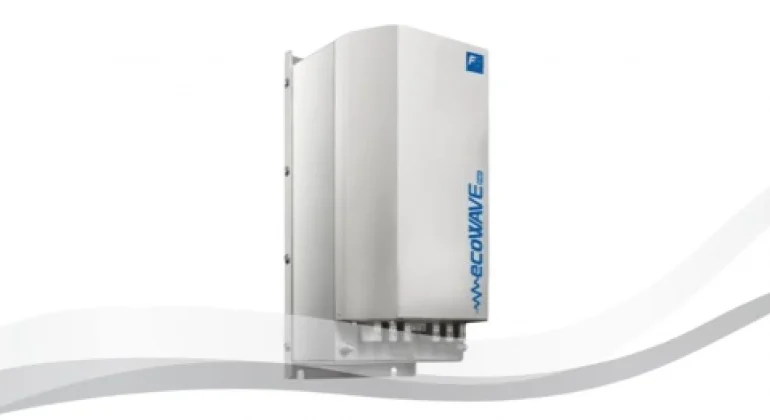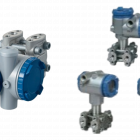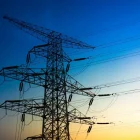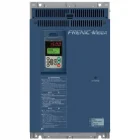Power quality is a major concern in today’s industrial and commercial environments. Equipment operation and wiring are internal factors that can cause 70% of power quality problems. Harmonics can negatively affect electrical systems and equipment, but a harmonic filter can help maintain power quality.
What are Harmonics in Electrical Systems?
Harmonics are distortions in the electrical waveform caused by nonlinear loads. Harmonics create a spectrum that includes components such as the 3rd, 5th, and 7th.
Sources of Harmonics
Equipment like variable-frequency drives (VFDs), rectifiers, and computers commonly produces harmonics in industrial and commercial settings. Modern electrical equipment can negatively impact power systems.
The Impact of Harmonics on Electrical Systems
Operational Effects
Harmonics can cause overheating in transformers, cables, and motors; reduce the efficiency of electrical systems; and lead to malfunctions or failures of sensitive electronic equipment.
Economic Consequences
Harmonics can lead to increased energy consumption, higher maintenance and repair costs, and potential fines for exceeding acceptable harmonic distortion levels.
Regulatory Compliance
Standards and regulations such as IEEE 519 and IEC 61000-2-2 address harmonic distortion. Compliance is important for businesses to avoid penalties and optimize energy use.
Pro-Tip: Assess your needs first. Before investing in any harmonic filter solution, conduct a thorough assessment of your facility’s power quality. Measure harmonic distortion levels, analyze your load characteristics, and understand the specific challenges your equipment faces. This upfront analysis will ensure you select the most appropriate and cost-effective filter for your needs.
What Are Harmonic Filters?
Harmonic filters are devices that mitigate harmonic distortion in power systems by filtering out unwanted frequencies and harmonics.
Types
-
- Passive Filters: Traditional filters that use inductance, capacitance, and resistance.
-
- Active Filters: Advanced filters that dynamically adjust to varying harmonic distortions.
-
- Hybrid Filters: Combination of passive and active technologies for better performance.
Applications
Harmonic filters can be used in industrial machinery, data centers, commercial buildings, and power grids, and can be customized for specific industries or equipment.
Industries Benefiting from This
Harmonic filters are essential for industries seeking to maintain power quality, improve energy efficiency, and protect sensitive equipment. Several sectors particularly benefit from deploying these filters:
-
- Industrial Manufacturing: Manufacturing plants that utilize numerous electrical equipment and machinery benefit from harmonic filters, which maintain power quality, protect equipment, and improve energy efficiency. Dynamic harmonic filters in manufacturing plants with large motors have shown a significant decrease in energy consumption and disturbance during operation after installation.
-
- Commercial Buildings: Modern commercial buildings with a high reliance on electronics like computers, lighting, and HVAC systems also benefit. Skyscrapers and large buildings utilize many power electronic systems that support nonlinear loads; active power conditioning is required to eliminate power quality issues. Active harmonic filters can provide the dynamic and reactive power compensation required in large commercial buildings.
-
- Renewable Energy: Wind and solar power systems benefit from harmonic filters that reduce harmonic distortion, stress on the grid, and improve the effectiveness of renewable energy sources.
-
- Steel Industry: In the steel industry, where an uninterrupted power supply is critical for continuous production, active harmonic filters dynamically mitigate harmonics in real-time, maintaining a stable power supply.
-
- Other Industries: Industries such as metal processing, oil & gas, welding plants, water and wastewater treatment facilities, and data centers also benefit from harmonic filters. Specific applications like welding plants benefit from active harmonic filters that mitigate flicker and improve equipment reliability. UPS systems also benefit, as active harmonic filters tackle harmonics and ensure a smooth, stable input current.
The increasing use of sensitive electronic devices, growing awareness regarding energy efficiency, and rising dependency on power quality drive the growth of harmonic filter use across various industries. Dynamic harmonic filters enhance power quality, reduce energy costs, and prolong equipment lifespan. By mitigating harmonic distortion, these filters increase the chances of sensitive equipment operating at specified parameters and therefore reduce chances of going offline for operational loss.
Fuji Electric Philippines’ Solutions
Fuji Electric has a global presence and offers expertise in power quality and energy solutions.
Fuji Electric’s Products
-
- Active: Provide real-time filtering solutions to correct harmonic distortion.
-
- Passive: Cost-effective solutions for reducing harmonic interference.
-
- Hybrid: Combine the benefits of both passive and active filters.
Key Features and Benefits of Fuji Electric’s Harmonic Filters
Fuji Electric’s harmonic filters offer high performance and reliability, energy efficiency improvements, compliance with international standards, easy installation and maintenance, and advanced monitoring and control features.
How to Choose the Right One for Your Business
Assessing Distortion Levels
Measuring and assessing harmonic distortion in your system is the first step in selecting a harmonic filter. Understanding the harmonic spectrum and load characteristics is also important.
Matching the Filter to the System
Choosing between passive, active, or hybrid filters depends on the system’s specific needs. Expert consultation and customization are important for selecting the correct filter.
Long-Term Benefits
Investing in harmonic filters offers a return on investment (ROI) through energy savings, improved equipment longevity, and reduced maintenance costs.
Managing harmonics in electrical systems is crucial for ensuring smooth, efficient, and compliant operations. Harmonic filters play a vital role in achieving these goals. Fuji Electric Philippines is a trusted partner in providing innovative, high-quality harmonic filter solutions.
Pro-Tip: Prioritize monitoring and maintenance. Harmonic filters are designed to provide long-term benefits, but they require regular monitoring and maintenance to ensure peak performance. Implement a monitoring system to track key parameters and schedule periodic maintenance checks to identify and address any potential issues promptly. This proactive approach will maximize the lifespan and effectiveness of your harmonic filter investment.
FAQs
What are the main causes of power quality issues in industrial facilities?
Equipment operation and wiring are internal factors that can cause most power quality problems. Voltage sags, voltage surges, and harmonics can also impact industrial equipment.
How do harmonic filters improve energy efficiency?
Harmonic filters reduce the stress on electrical equipment, which lowers energy losses and improves the overall efficiency of the system.
Are Fuji Electric’s harmonic filters compliant with international standards?
Yes, Fuji Electric’s harmonic filters are designed to comply with international standards such as IEEE 519.
What is the difference between active and passive harmonic filters?
Passive filters use traditional components like inductors and capacitors, while active filters use advanced electronics to dynamically adjust to harmonic distortions.
How can I get my facility assessed for harmonic distortion?
Contact Fuji Electric Philippines to schedule an assessment of your electrical system. Their experts can help you measure harmonic distortion levels and recommend the appropriate filter solutions.
About Fuji Electric Sales Philippines, Inc.
Fuji Electric Sales Philippines, Inc. represents Fuji Electric Co., Ltd. in the Philippines. The company manages sales, promotion, and support for a wide range of products that improve energy efficiency, advance automation, and boost the country’s power infrastructure.
Contact Fuji Electric Philippines for consultations, product information, or to schedule an assessment of your electrical system. For more information, contact:
Rickson Manalo
Assistant Sales Manager
0917-115 6102









